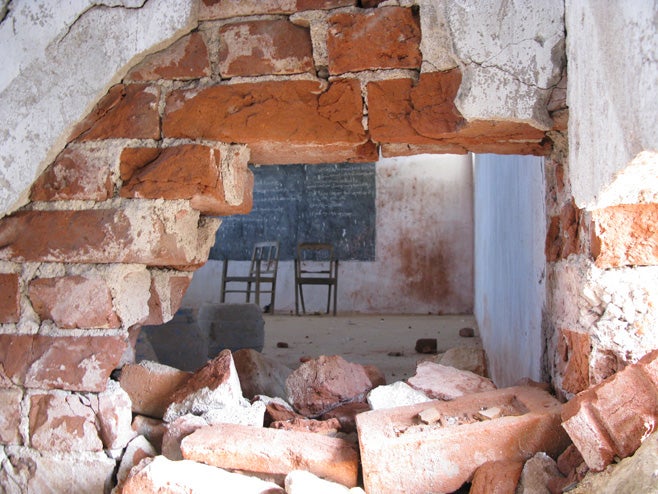
© 2009 Bede Sheppard/Human Rights Watch
“Students, teachers, and academics have been threatened, doused with acid, shot at, and summarily executed, and schools and universities have been bombed, burned, and shelled,” said Zama Neff, children’s rights director at Human Rights Watch. “Governments need to strengthen efforts to keep schools, teachers, and students safe during armed conflict.”
Joy Bishara, who was among the 276 schoolgirls abducted by Boko Haram from a government secondary school in Chibok, Nigeria in 2014, will brief the Security Council at the meeting.
“Students need to feel safe and study their dreams without fear,” Bishara said in her prepared remarks. “I hope and pray that no student will go through what I went through because of an unprotected school.”
Security Council members should endorse the Safe Schools Declaration, an intergovernmental political commitment to protect education in armed conflict and to avoid the use of schools for military purposes, Human Rights Watch said. Since the declaration was opened for endorsement in May 2015 at the Oslo Safe Schools Conference, 69 countries have endorsed it, including countries from all regions, more than half of NATO states, and two-thirds of the European Union. But only five of the current Security Council members – France, Italy, Kazakhstan, Sweden, and Uruguay – have endorsed the declaration.
“The Security Council has focused attention on attacks on schools as a grave violation against children,” Neff said. “Members should show leadership on this issue by endorsing the Safe Schools Declaration and using it to protect schools during war.”
Neff, who also co-chairs the Global Coalition to Protect Education from Attack, and Virginia Gamba, the special representative of the secretary-general on children and armed conflict, will also brief the Security Council at the Arria Formula meeting. Such meetings are informal meetings with civil society and other experts to enable Security Council members to discuss matters of concern. The meeting is public.
 Techosta Where Tech Starts From
Techosta Where Tech Starts From
